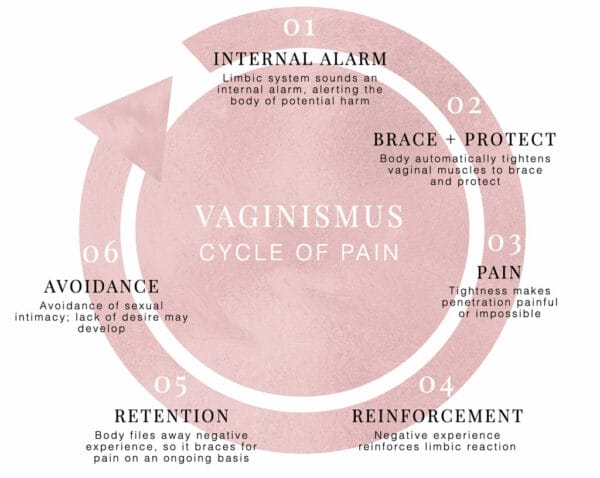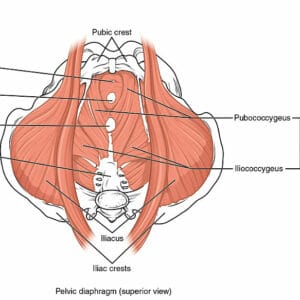 image: Hope & Her (www.vaginismus.com)
image: Hope & Her (www.vaginismus.com)
Vaginismus (sometimes referred to as Genito-Pelvic Pain/Penetration Disorder, GPPPD), is a condition caused by the involuntary tightening of the muscle surrounding the vaginal wall. This can make penetration difficult, painful, or impossible.
Many people experiencing Vaginismus often mistakenly wonder if their vagina is too small, if their hymen is blocking the vaginal opening, or if they have no vaginal opening. Early symptoms can include difficulty inserting tampons or menstrual cups after multiple attempts, or difficulty undergoing pelvic or gynecological exams. Other symptoms may include ongoing tightness or discomfort with a previous history of normal intercourse.
Vaginismus may be triggered by:
• Urinary tract or other pelvic infection (yeast infection, sexually transmitted infection, etc.)
• Endometriosis
• Genital/pelvic tumors
• Cysts
• Cancer
• Pelvic Inflammatory Disease
• Eczema
• Childbirth (difficult vaginal delivery, cesarian section, etc.)
• Miscarriage
• Pelvic surgery
• Vaginal prolapse
• Age-related changes (hormonal/lubrication reduction after menopause, vaginal atrophy)
• Certain medications
• Stress or anxiety
• Fear
• Sexual or nonsexual trauma
After one or more of these possible triggers, the body then unconsciously contracts the muscles surrounding the vagina, leading to difficulty or inability to penetrate and/or pain. When insertion is impossible or painful, additional attempts at insertion tend to reinforce the negative muscular response, which further solidifies the mind-body reaction of involuntary contraction. While it impacts each person differently, most who live with Vaginismus report that it has a negative impact on their quality of life.
Fortunately, Pelvic Physiotherapy has shown great results in recovery including reduction in pain, better sexual function, and improving quality of life in those affected by Vaginismus! People can learn to train their bodies to overcome this reaction with the help of their Pelvic Physiotherapist.
If you are struggling with Vaginismus, you are not alone. Contact us to book an appointment with one of our Pelvic Physiotherapists today!
Our More Locations
Physiotherapy Etobicoke | Physiotherapy Oakville | Physiotherapy North York | Physiotherapy Toronto | Physiotherapy Lawrence Park | Physiotherapy Mississauga | Physiotherapy Queens Quay | Physiotherapy Mississauga Erin Mills | Physiotherapy Liberty Village



